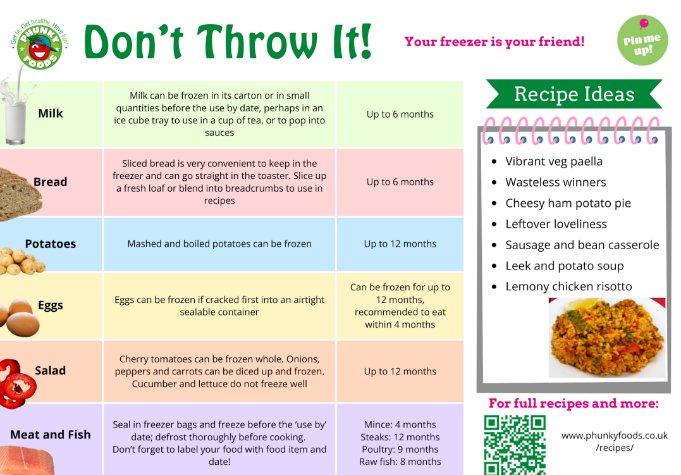The calendar of 2024 features several different awareness days relating to the hot topic of Food Waste…
UK Compost Week took place back in early March, Food Waste Action Week was held between 18-27th March and the 17th April marks Stop Food Waste Day!
Food waste is a BIG problem, and the stark facts are here:
Research has shown that £4.5 million tonnes of edible food is thrown away in the UK every year.
- Globally this stretches to approximately one third of all the food that is grown in the world being thrown away before being eaten!
- It is estimated that up to £60 a months’ worth of food per average family of four ends up in the bin (WRAP, 2023).
There isn’t just a financial aspect to food waste, the far bigger picture starts with the huge amount of resource wasted in food production, the farmers time and energy growing the crops. In addition, there is the fuel, energy and environmental aspect of the delivery of the produce, along with the time preparing and cooking the food at home.
Food waste is harmful to the environment: wasted food means increases greenhouse gas emissions and global warming, deforestation, and water shortages. Food waste is responsible for 10% of greenhouse gas emissions, and surprisingly that is more than the aviation industry. And we haven’t even started on the waste associated with food packaging!
How can we all do our bit to reduce food waste?
Know your dates…
- Use-by date
A use-by date on food is about SAFETY. This is the most important date to remember!
Never eat food after the use-by date, even if it looks and smells ok, as it could make you very ill. You will see use-by dates on food that goes off quickly, such as dairy / meat products or ready-to-eat salads.
- Best before dates
The best before date, sometimes shown as BBE (best before end), is about QUALITY and not safety. After the best before date listed on a product, the food will be safe to eat but may not be at its best.
Best before dates appear on a wide range of foods including:
- frozen foods (such as peas, chips and ice cream)
- dried foods (such as pasta and rice)
- tinned foods (such as baked beans and canned tomatoes)
- cheese
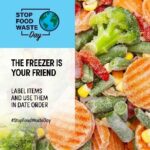
For the use-by date or best before date to be a valid guide, you must carefully follow the food's storage instructions! Set your fridge to below 5°C to prolong the life of food stored in there. If you’re not going to repurpose your leftovers straight way – pop them in the freezer!
Meal planning…
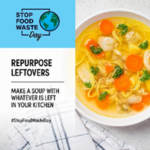
Leftovers can be used to make another tasty and nutritious meal, rather than throwing them away.

Every day, unsold food from our favourite restaurants, shops and cafés goes to waste simply because it hasn’t sold in time. The Too Good To Go app is a step in the direction to help reduce this. By downloading the free app you can locate a Surprise Bag locally and rescue perfectly good and tasty food from being thrown away – saving money at the same time!
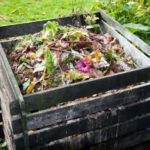
We can compost our fruit and vegetable peelings. By converting our kitchen and garden waste into nutrient-rich compost, it not only reduces the strain on landfills but also promotes soil health and supports local ecosystems.
What about waste from food packaging?
A lot of our food comes in packaging, and much of this cannot be recycled.
Children can help to avoid unnecessary waste at school by taking packed lunches in reusable containers, rather than in plastic film or foil. It can also be helpful to avoid pre-packed single items (e.g. cheese sticks, dried fruits, biscuits), and instead buy larger packs and portion them into reusable containers.
PhunkyFoods Waste resources…
We have some fantastic resources on the topic of Food Waste available on the PhunkyFoods website, including assemblies, workshops, Ambassador activities and the leaflet below designed for parents as well as much more.
The leaflet and other assets can be downloaded and added to your Newsletters, School web and social media sites or if you’d like physical copies they can be printed or ordered direct from your local Engagement & Development Co-ordinator (EDC).
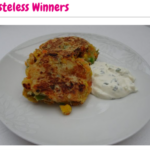
Why not try one of our fabulous PhunkyFoods “leftovers” recipes in support of tackling unnecessary food waste…
This tasty treat which can be served as a light lunch with some reduced fat sour cream, or as a vegetable side dish with a main meal.
https://www.phunkyfoods.co.uk/recipe/wasteless-winners/
Look out for our next Newsletter after Easter, when we will share some of the recent examples of work that we have done on Food Waste across our schools and Holiday Activities and Food Programme (HAF) sessions.
Further information:
https://www.bda.uk.com/resource/tackling-food-waste.html
https://www.bhf.org.uk/informationsupport/heart-matters-magazine/news/10-ways-to-cut-your-food-waste
https://www.bbcgoodfood.com/howto/guide/how-reduce-food-waste


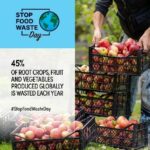 Research has shown that £4.5 million tonnes of edible food is thrown away in the UK every year.
Research has shown that £4.5 million tonnes of edible food is thrown away in the UK every year.